- Home
- Parnell Hall
6 Juror Page 3
6 Juror Read online
Page 3
So I had to go through the whole spiel again. First I had to explain that I’d just been on the phone with Richard, since Wendy/Janet didn’t know I’d been on the phone with Richard, since Wendy/Janet hadn’t been the one who’d connected me.
By the time I got off the phone my head was spinning, but I had Wendy/Janet’s solemn assurance that she understood the situation. On that, I would not have made book. But in more practical terms, she had given me a signup for eight-thirty the next morning, with a Lincoln Monroe Jackson of 109 West 129th Street, who had fallen in his building and broken his leg.
I hung up the phone went back and sat down. Well, hell, I’d done it now. The die was cast. I was up to my old tricks again, juggling my responsibilities.
Suddenly I felt like shit. Insecurity poured over me. The worst of it was that Lincoln Monroe Jackson had no phone. See, with Wendy/Janet I always like to call the client first and verify the address before going there, since Wendy/Janet are so likely to be wrong. And tomorrow morning I won’t have time to cope with a wrong address, what with having to get downtown by ten o’clock for jury duty and everything. So by all rights, the Lincoln Monroe Jackson case had all the earmarks of being a potential total disaster.
Not so, quoth the schizophrenic. If the client is not at that address, then there is no way to verify what address he’s really at, so you hang it up and wash it out and go downtown and serve your jury duty. And if Wendy/Janet ever straightens it out and you finish the assignment, you add on an hour’s time for having gone to the wrong address.
Thinking along those lines made me feel a little better. Maybe it would work out. By rights, it should work out. After all, a guy named after three presidents wouldn’t screw me, would he? Of course not. I’d do that signup and I’d get another one for the afternoon, and I’d get four hours for the day. At ten bucks an hour, that’s forty bucks.
And hell, who said my afternoon signup only had to be two hours? So I get home late. Big deal. Maybe I could take an afternoon case out in Queens, get three hours plus some mileage. Hell yeah, no reason why I shouldn’t do that. Maybe I should call Wendy/Janet back.
I’d just gotten into the phone booth to do that when I heard the squawk of the loud speaker. “All right, listen up, jurors. When I call your name answer ‘Here,’ take all your belongings and go out and wait in the corridor for the court officer.”
I looked out of the booth. College Boy was at the microphone. He had set up a metal drum on the counter/desk, and as I watched he opened a flap, dropped the ballots in, closed it, turned a crank and gave the drum a spin. He looked as if he were raffling off a turkey at the county fair. He cranked the drum around a few times, opened the top, reached in and pulled out a ballot.
“Carla Feinbaum,” he said.
A voice said, “Here,” and an elderly woman got up from one of the chairs, gathered up her purse and her Daily News and shuffled up the aisle toward the back door.
Good lord. So this was how they chose jurors. It had never occurred to me before, but I guess to be truly fair, it had to be random.
Looking over the jurors in the room I spotted the old man who had talked to me. So this was why he hadn’t been chosen. It wasn’t due to any failing on his part. It was simply the whole thing was a lottery, and he just wasn’t lucky.
I was.
The fifth name read was Stanley Hastings.
4.
I ANSWERED, “Here,” took all my belongings (none), went out and waited in the corridor. Four other prospective jurors were already there. A man and three women. I could tell them from the other people in the corridor who were simply smoking and drinking, first of all because they were standing and holding their belongings, and second of all because I’d seen them all shuffle up the aisle. I joined them and made five. By the time I had, more names had been called out and more people were shuffling up the aisle and joining us.
I figured they’d call twelve people because that’s how many there are on a jury. I figured wrong. There’s twelve on a jury but there’s also four alternates, making a total of sixteen. And they don’t call sixteen either. That’s how many they want to end up with. In this case, they called about fifty. In no time at all the corridor was absolutely jammed with people just standing and waiting.
A woman next to me in a trim pants suit struck me as an intelligent-looking executive type.
“What do we do now?” I asked her.
She smiled helplessly, immediately belying the image. “I don’t know. It’s my first day.”
A plump, middle-aged man with a rather jolly expression leaned in. “We wait here for the court officer. When they’re ready, he’ll come take us upstairs.”
“I thought the criminal court was across the street.”
“It is, but there’s courtrooms here too. There’s courtrooms all over.”
“Have you done this already?”
He seemed pleased. “Oh yes. This is the fifth time I’ve been called.”
“Fifth?”
“Yeah. It’s my fifth case. They keep kicking me off.” He seemed rather pleased by that, too.
So was I. An expert. “Oh yeah? How come?”
“Because I have a college education. A criminal case, they usually kick you off if you have a college education.”
“Really?” the woman said. “And why is that?”
The guy shrugged. “I think it’s ’cause the defendant’s usually dumb. You’re supposed to be tried by a jury of your peers. I think the defense attorneys figure educated people are going to be prejudiced against uneducated criminals.”
“I suppose that makes sense,” I said.
He shrugged again. “I don’t know. All I know is, I been booted off four times.”
I felt a glimmer of hope. I have a college education. Maybe I’d be booted off too. I sure hoped so. I had an appointment the next morning with Lincoln Monroe Jackson, and I had no time for this shit.
A young court officer pushed his way through the crowd. He wore a white shirt and dark pants, standard court officer uniform. He also wore a gun, which I hoped was utterly superfluous and just for show. I couldn’t imagine a shootout in this building.
“All right, listen up, jurors,” he said. “We’re going to part 24 on the sixth floor. When you get up to the sixth floor, just wait in the corridor for further instructions.”
He turned and led us down the corridor to the elevators. We couldn’t all fit in one elevator, of course. When the first one arrived, the court officer shoved in as many jurors as he could, pressed the button and sent them up. He immediately rang for another elevator. There were six in the bank, so it wasn’t that long before we got one. In fact, we got two, almost simultaneously. I got shoved into the first one of those, and we rumbled up to six.
I got out and stood around looking stupid, waiting for the other elevators to arrive. The last one did and the court officer emerged and herded us all down the corridor and around the corner, and stopped us in front of a door that read PART 24.
“All right. Wait here,” he said.
He opened the door and slid inside, closing the door behind him.
I stood there in mounting distress. Good lord. When they called fifty names I figured they were calling jurors for at least two separate trials. But no, they’d all come here. What was going on that was so important they needed fifty jurors? Whatever it was, I sure didn’t want to be part of it. Could I really count on my college education to keep me out? If so, it would be the first concrete thing my liberal arts degree had ever done for me.
The door opened again and the court officer came out.
“All right, jurors. Please file in quietly and take your seats.”
He stepped aside and ushered us in.
I filed in quietly.
It was a small, contemporary courtroom, the type you see on TV. We were filing in from a door in the middle of the back. Directly in front of us were three rows of benches for the spectators, and this was where the court officer was indic
ating for us to sit. Ahead of them was a rail and a gate, leading to the rest of the courtroom. Directly ahead of us, in the middle of the back wall, was the judge’s bench, raised and regal. Behind it sat an elderly judge, white-haired, bespectacled, solemn and dignified in his judicial black robe.
To his left, on the side wall, was the jury box. To his right, on the other side wall, was the bailiff’s desk. To his immediate left, higher than the jury box but lower than his bench, was the witness stand.
In front of the judge’s bench were two tables. At the table to his right sat two middle-aged men in suits and ties. Clean cut, clean shaven, impeccably and conservatively dressed. One fat and one thin, but otherwise absolutely identical. Obviously the prosecutor and his assistant, though which was which I couldn’t tell.
At the other table sat a slightly older attorney. Slightly seedier, slightly tweedier, slightly more folksy, but still with an air of practical, down to earth respectability. Next to him sat a young black man about twenty years of age, who, despite being dressed in a new suit, and despite I was sure, countless hours of coaching by his attorney, could not somehow help looking tough.
I sank into my seat on the bench with a hollow feeling in the pit of my stomach that simply would not go away. Jesus Christ. Oh my god. Jesus fucking Christ.
When we were all seated the judge said, “Good afternoon, jurors. I’m Judge Coles. We will be selecting jurors this afternoon. This is a criminal case, so we need twelve jurors and four alternates. We have already chosen ten jurors, so we are looking for two more and four alternates. Bailiff, would you please fill the box.”
It was another turkey raffle. The court officer handed our ballots to the bailiff, who dropped them into another tin drum, cranked it up, and began pulling out ballots and reading off names.
I was the sixth name drawn. Wouldn’t you know it. I never win anything. And here I am, two for two.
I marched through the gate as if I were the one who was on trial, and seated myself in the juror box in seat number six.
I did so as if in a daze. Here it was, my worst nightmare. The judge’s words kept ringing in my ears like a death knell. “We’ve already selected ten jurors.” I mean, good lord. The fifty of us had not been brought here to form a jury. Jury selection had already been going on, obviously for some time. All of us had been brought here to find two real jurors and four alternate jurors, a grand total a six people still needed to judge this case.
Which meant it was the thing I dreaded most. A big case. A murder case. Here I was called into the box, and I knew as sure as I was sitting here, that my college education not withstanding, I was going to be chosen. I would be put on the jury and the case would last for months. That’s what happened in murder trials. Christ, the Larry Davis trial had gone on for months, hadn’t it? And then there was the deliberation. Jesus Christ, the deliberation! That alone could last for weeks. And, oh shit, they’d sequester us. That’s what they did in murder trials. Put up in a hotel and not allowed to go home, and not allowed any contact with the outside world. Not allowed to do anything until we hammered out a verdict.
A verdict that would never come because we couldn’t agree. And, Christ, what if it’s the worst? What if it’s like Twelve Angry Men? What if it’s eleven against one, and I’m the only holdout? What a moral dilemma. How strong am I? Can I hold out in the face of those odds? And if not, can I live with myself if I send a man to prison just because I’m tired and I want to go home? Jesus Christ, oh god, oh damn it to fucking shit hell.
When the box had been filled, Judge Coles said, “All right, jurors. As I said this is a criminal trial. This is the case of the people of the state of New York versus Raheem Smith. It is a case of petty theft arising from a chain snatching that occurred on the 66th Street Broadway IRT line. Mr. Smith is represented by his attorney, Mr. Franklin. The People are represented by Assistant District Attorney Blaire and Assistant District Attorney Maxwell. Now first of all, I am going to ask if any of you know any of the parties involved. Then I am going to ask if any of you have ever been personally involved in a chain snatching incident. Then. . .”
He went on, but I had stopped listening. My head was spinning. Good lord. This wasn’t a murder case. This was a simple chain snatch. All these people, the attorneys, the judge, the bailiff, the court officers, the court reporter, and the hundreds of prospective jurors who must have paraded through this room—all that time, effort and money was being expended because some punk snatched someone’s gold chain.
It had never occurred to me before, but now I realized, if this was what it took to try some punk chain snatcher, no wonder our court system was so backed up. No wonder crime flourished in our city. No wonder the police couldn’t seem to do anything about it. Sure, every man’s entitled to a day in court. Every man’s entitled to a trial by jury. Yes, I’m a liberal and I believe in civil rights.
But Jesus Christ.
I looked at the attorney sitting beside the defendant, and then at the two prosecutors, and wondered why in the world they hadn’t plea-bargained this case. To me, there was only one explanation. The defendant must have had prior convictions. He was probably out on parole now, and a conviction of any kind would violate that and send him back to jail. That was why his lawyer wouldn’t cop a plea. Yeah, that had to be it.
It suddenly hit me in the face. You mealy-mouthed, hypocritical, liberal asshole. Do you hear what you’re thinking? Never once did it cross your mind, never once did it occur to you that this defendant might be innocent. Maybe that was why he wouldn’t cop a plea. Maybe that was why he was fighting the case.
Realizing that made me feel pretty bad.
What made me feel worse was realizing I didn’t care. Some solid citizen. Some prospective juror. But to be honest, that was the case. I didn’t care if the man was innocent or if the man was guilty. And I didn’t want the responsibility of making that determination. I had my own problems, and my own totally selfish motives. And they had nothing to do with the man in that courtroom. All I knew was, guilty as it made me feel, more than anything else in the world, I wanted to be off that jury.
That jury I knew they were going to put me on.
5.
THEY DIDN’T.
They kicked me off. It took them all day to do it, but in the end they let me go. The judge interrogated us for an hour and then sent us to lunch, and when we came back the attorneys interrogated us for a couple more hours, and the end result was, of the sixteen prospective jurors they booted fourteen of us and kept only two. The kicker was, just before we went home the guy who’d been booted off four juries already because of his college education came downstairs grinning from ear to ear and announced the judge had just booted everyone because the attorneys had finally plea-bargained the case.
Somehow, that did not restore my faith in the judicial process.
But it did leave me free to handle the Lincoln Monroe Jackson case, and eight o’clock the next morning I dropped my son Tommie off at the East Side Day School, and headed uptown for my eight-thirty appointment in Harlem.
Lincoln Monroe Jackson lived in one of those projects I see in my dreams, and I don’t happen to sleep well. The glass in the foreboding bleak metal door had been kicked in, and the doorknob was missing. The lobby was dark, was scrawled with horrid graffiti, and stank. It was also occupied by a very strung out-looking black man who might have been any age from twenty to sixty. He had his hands deep in the pockets of his grungy army jacket. The temperature was close to eighty and rising fast, so the only reasons I could think of for him to wear it was because he had no place to leave it, or because he didn’t even notice it was warm out, or because he needed some place to carry his gun. Speculating on that did not cheer me, nor did the fact he was staring at me fixedly, as if trying to make up his mind whether I was a cop or a moron—any white man in a suit and tie in that building had to be either one or the other.
There were two elevators in the lobby, and one of them might have been functio
ning, but I didn’t feel like hanging around to find out. There was a metal door to a stairwell to the right of them, and I headed for that, even though Lincoln Monroe Jackson lived on the seventh floor. Seven floors was nothing. In buildings like this, rather than wait for the elevator, I’d often climbed as high as twelve.
I reached the seventh floor, went through the usual bullshit of locating the apartment among doors on which the numbers had long since fallen off, and finally located Lincoln Monroe Jackson.
He was a cheerful cripple, an amiable black man of about forty, who seemed perfectly pleased with everything including the cast on his leg. Which was actually not that surprising—after all, he expected it to make him money. But he was also cooperative, direct and succinct, which was a great relief to me, seeing as how I had to get downtown by ten o’clock.
I filled out the fact sheet in no time, Lincoln Monroe Jackson supplying me with all his vital statistics, as well as all the details of his accident, which had occurred in his building. The hardest part of the fact sheet is the blank marked HISTORY, on which I was supposed to record a description of the accident. Some of these can be long, complicated and meandering. Lincoln Monroe Jackson’s said simply, “SLIPPED IN URINE.”
That did not, as you might think, make him unique, Sadly enough, with poor people in poor neighborhoods, I had had occasion to write the words SLIPPED IN URINE before.
Lincoln Monroe Jackson’s accident had occurred in the stairwell from the eighth to the seventh floor. He had been going down the stairs, slipped in a pool of urine, fallen down and broken his leg. For this, he was attempting to sue the City of New York. At first glance, that might appear strange. I mean, after all, how could you hold the City responsible unless someone from the mayor’s office had come down and pissed in the stairwell? But as it turned out, in my humble opinion, which of course counts for nothing, Lincoln Monroe Jackson actually had a case. You see, the project had odd/even elevators, which has to be the greatest technological advancement since the Edsel. I’m no genius, but even I know odd/even elevators don’t belong in a project. Things break down fast in projects. The arrival of an elevator in a project lobby is a fortuitous event. When it occurs, no matter what floor they’re going to, everyone gets in, rendering the concept for which odd/even elevators were originally designed absolutely worthless. So people ride to floors they don’t want to go to, and have to use the stairwells.

 Clicker Training
Clicker Training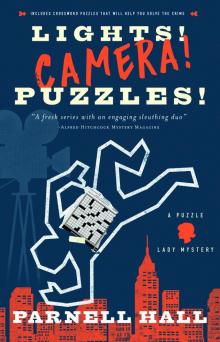 Lights! Camera! Puzzles!
Lights! Camera! Puzzles!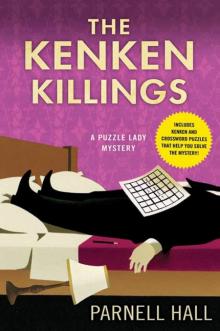 The KenKen Killings
The KenKen Killings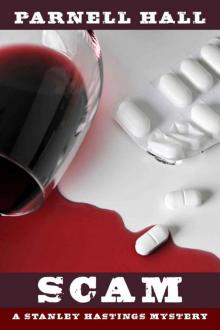 12-Scam
12-Scam The Puzzle Lady vs. the Sudoku Lady
The Puzzle Lady vs. the Sudoku Lady 2 Murder
2 Murder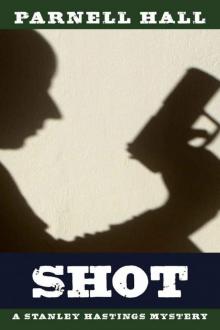 7 Shot
7 Shot You Have the Right to Remain Puzzled
You Have the Right to Remain Puzzled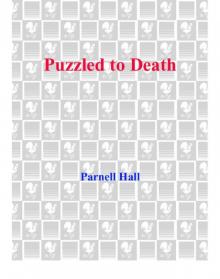 Puzzled to Death
Puzzled to Death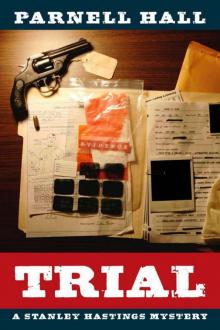 11-Trial
11-Trial The Witness Cat (Steve Winslow Mystery)
The Witness Cat (Steve Winslow Mystery) With This Puzzle, I Thee Kill
With This Puzzle, I Thee Kill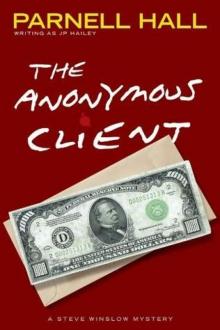 The Anonymous Client sw-2
The Anonymous Client sw-2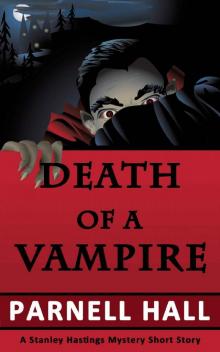 Death of a Vampire (Stanley Hastings Mystery, A Short Story)
Death of a Vampire (Stanley Hastings Mystery, A Short Story)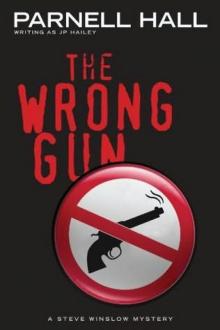 The Wrong Gun sw-5
The Wrong Gun sw-5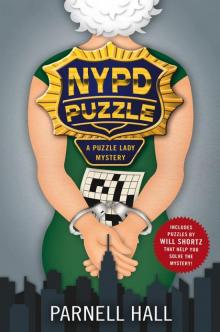 NYPD Puzzle
NYPD Puzzle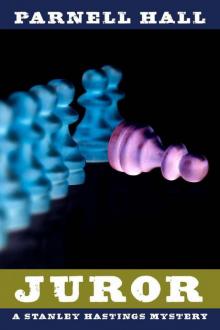 6 Juror
6 Juror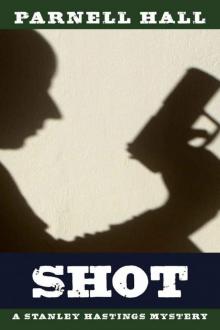 07-Shot
07-Shot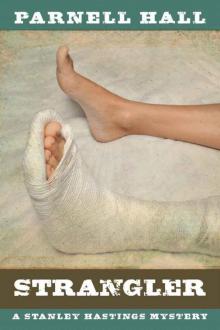 04-Strangler
04-Strangler 02-Murder
02-Murder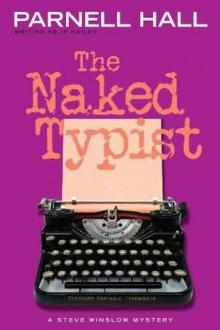 SW04 - The Naked Typist
SW04 - The Naked Typist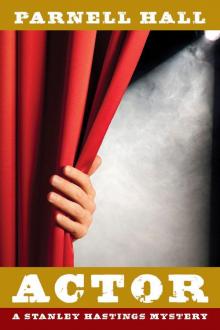 Actor
Actor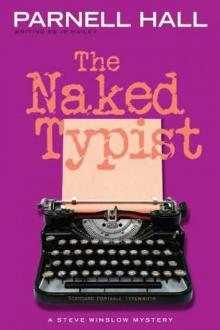 The Naked Typist sw-4
The Naked Typist sw-4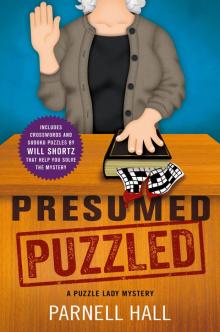 Presumed Puzzled
Presumed Puzzled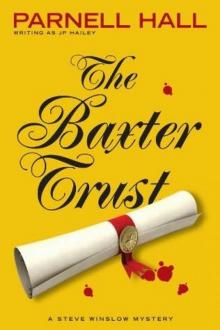 SW01 - The Baxter Trust
SW01 - The Baxter Trust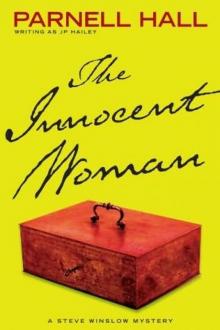 SW06 - The Innocent Woman
SW06 - The Innocent Woman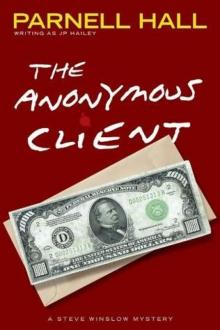 SW02 - The Anonymous Client
SW02 - The Anonymous Client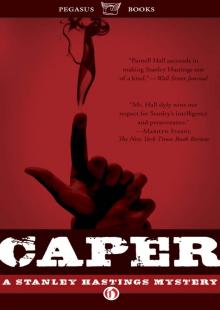 Caper
Caper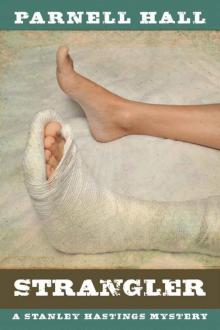 4 Strangler
4 Strangler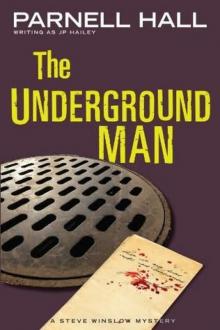 The Underground Man sw-3
The Underground Man sw-3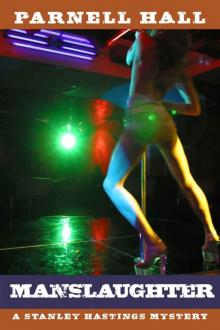 Manslaughter (Stanley Hastings Mystery, #15)
Manslaughter (Stanley Hastings Mystery, #15)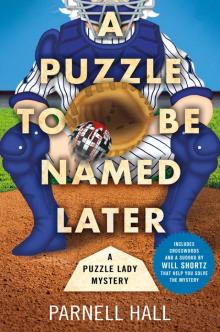 A Puzzle to Be Named Later--A Puzzle Lady Mystery
A Puzzle to Be Named Later--A Puzzle Lady Mystery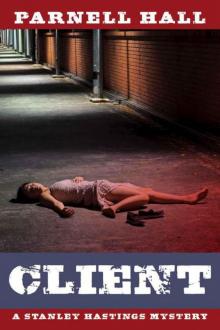 05-Client
05-Client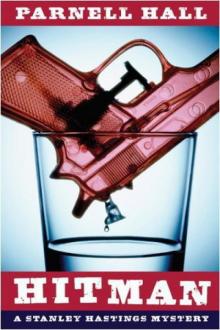 16 Hitman
16 Hitman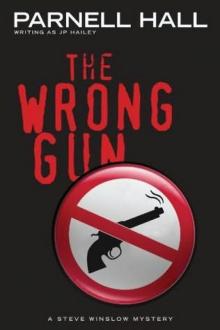 SW05 - The Wrong Gun
SW05 - The Wrong Gun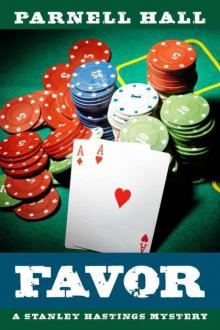 3 Favor
3 Favor Last Puzzle & Testament
Last Puzzle & Testament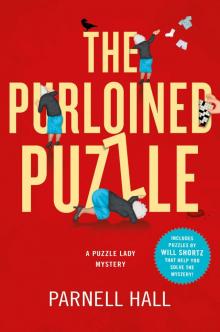 The Purloined Puzzle
The Purloined Puzzle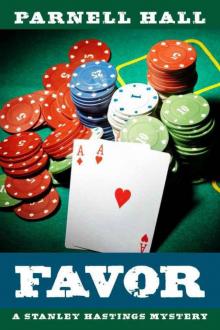 03-Favor
03-Favor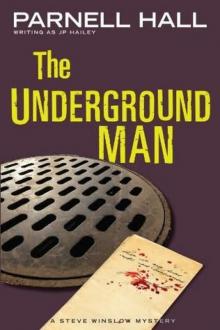 SW03 -The Underground Man
SW03 -The Underground Man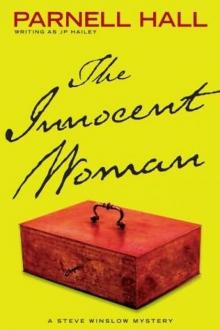 The Innocent Woman sw-6
The Innocent Woman sw-6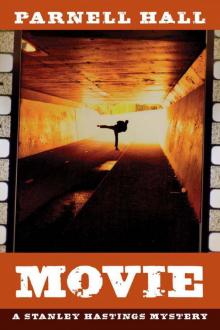 10 Movie
10 Movie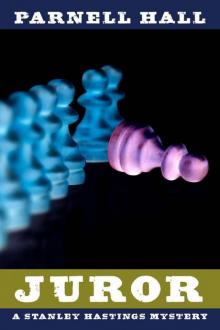 06-Juror
06-Juror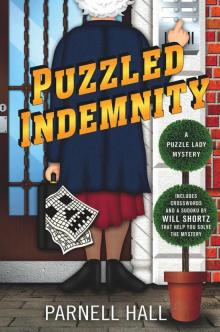 Puzzled Indemnity
Puzzled Indemnity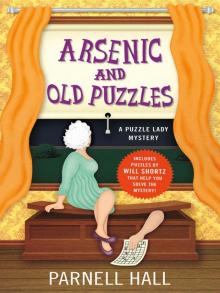 Arsenic and Old Puzzles
Arsenic and Old Puzzles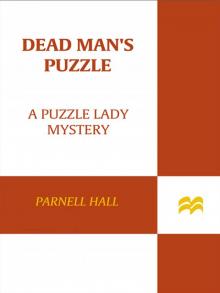 Dead Man's Puzzle
Dead Man's Puzzle Safari
Safari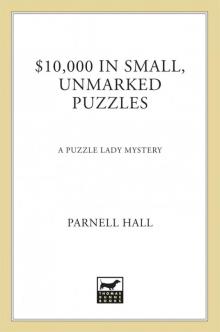 $10,000 in Small, Unmarked Puzzles
$10,000 in Small, Unmarked Puzzles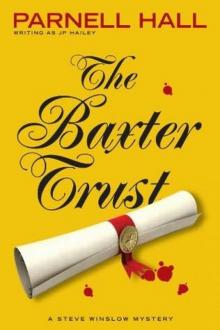 The Baxter Trust sw-1
The Baxter Trust sw-1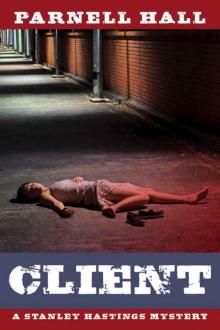 5 Client
5 Client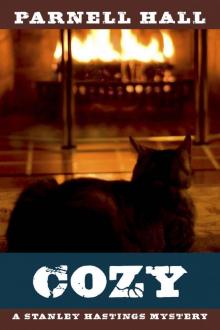 Cozy (Stanley Hastings Mystery, #14)
Cozy (Stanley Hastings Mystery, #14)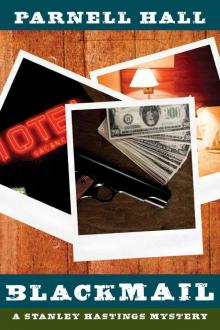 Blackmail
Blackmail A Puzzle in a Pear Tree
A Puzzle in a Pear Tree A Clue for the Puzzle Lady
A Clue for the Puzzle Lady Clicker Training (Stanley Hastings Mystery, A Short Story)
Clicker Training (Stanley Hastings Mystery, A Short Story)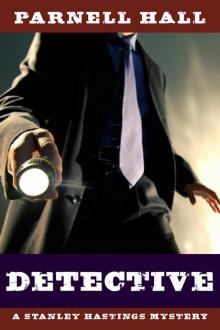 Detective (Stanley Hastings Mystery Book 1)
Detective (Stanley Hastings Mystery Book 1)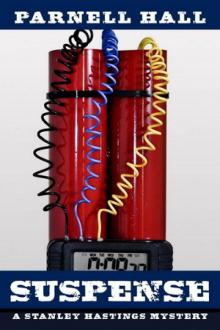 13 Suspense
13 Suspense